|
BoJack Horseman is probably my favourite show running right now. What finding a depressed, self destructive, has been, alcoholic horse one of the most relatable characters in modern pop culture says about me I’d rather not delve into, but both his and the other equally endearing supporting cast’s search for happiness and meaning in an uncaring, nihilistic world is what makes it the most human show out there. Season 5 has everything you’ve come to expect from a season of BoJack, from razor sharp pop culture commentary and dictionary defying tongue twisting puns to episodes based around a social issue takedown, a format breaking experiment and an emotional wrecking ball penultimate episode. However I feel this is the first season that hasn’t exceeded the one that came before. That’s not to diminish Season 5, it’s more due to the impossibly high bar set by Season 4. While last year there were some episodes I had to stop Netflix from auto-playing so I could take a moment to calm down and collect myself, this year my jaw spent less time on the floor. Maybe this is because it’s more reflective and less visceral, a lingering sense of foreboding instead of shock gut punches. Perhaps this was more important for me in a show which when I look back on the moments of hurt have stuck more than the moments of comedy. And that’s saying something for one of the funniest shows out there. The central focus of this season is BoJack filming a new TV show in the starring role as ‘Philbert’, a character who bears too many similarities to his real life for his liking. While other shows might try and seed this in the background, BoJack Horseman straight up tells you so, even down to the Philbert’s apartment looking identical to BoJack’s. It’s one aspect where being a half hour comedy benefits BoJack Horseman, as its characters all wear their hearts on their sleeves. Instead of slowly drawing out revelations with pseudo depth and broody clichés as wannabe prestige dramas (and god knows student films) can do, like the show in this show Philbert does, BoJack positions its characters strongly and early and leaves their development to come through their actions. Those actions are BoJack’s greatest strength, with the show consistently taking brave decisions few other shows would take. There are many times where characters, even supporting characters, make surprising and nuanced decisions over what would be the obvious or in several cases the ‘right’ option. By his very nature BoJack is not a particularly likeable character and what we’ve seen him do some might find unforgiveable. What the show does is place you in his perspective, where even he recognises what he does is wrong, leading to his now regular mental breakdowns. There have been many antiheroes in shows with similar themes in television’s golden age, but while Tony Soprano and Don Draper drew questionable admiration, no one has ever wanted to be BoJack Horseman. This season is the one that has relied most on what has come before. It is one of the best shows at dealing with consequences, both episode to episode and in overarching plot points. More than ever BoJack’s past is catching up to him, which is not coincidentally happening against the real life #MeToo movement shaking Hollywood. BoJack has always appeared to, if not outright cross, hover around the line of acceptable behaviour, and now it’s not only endless self recrimination he is facing but that of those closest to him holding him to account. A main theme of Season 5 was the value of forgiveness and if given a second chance, will certain people make the most of it. It was also a good season for those closest who have become as much a lifeblood of the show as its star. All four other main characters get ample screentime – a good thing BoJack isn’t watching as he’d have something to say about that – including episodes in which they take the A Story and others which give flashbacks to flesh out their lives. Princess Caroline and Mr Peanutbutter move on from the bum hands they were dealt the end of last season, Diane spirals in a way that again mirrors BoJack, re-establishing them as the most important relationship in the series, and Todd finds himself in a position of responsibility which in no way prevents him getting into unpredictable and utterly outlandish situations. This is the most different they have all been since the show started, whether that be in new circumstances and relationships, even down to how they look different, Diane with new hair and Todd wearing a suit(!), subtle indications the show is progressing and maturing as it must after five years.
Of the other characters introduced, the one Mr Peanutbutter is paired with, Pickles, still feels the most like a plot point more than a fully developed character. Flip, the megalomaniac showrunner of Philbert is a stereotypical tortured ‘artist’, whole heartedly believing his show is deep and profound but with little new to say and runs as a foil for BoJack at several points. The standout is BoJack’s new co-star Gina. Starting as a distant actor for hire, "a sentient wall of spikes," she is given real room to grow, exploring her forgotten dreams and potential future and has the most impact on the plot of all of BoJack’s girlfriend of the years. In as a spoiler free way as possible, she will definitely be joining the cast of BoJack’s past regret montages. All of this said and without even mentioning how damn funny BoJack still is. The joy comes in just listening to its characters either in casual conversation or explaining a ridiculous situation. It doesn’t sit on its jokes, often rolling from one into the next before you’ve time to stop laughing, meaning there will be a lot of rewinding to catch all the gags. The attention to detail is remarkable, both in throwaway sight gags – a t-shirt that appears for a few frames reading “Stop pausing and just watch the show” – to elaborately constructed payoffs episodes in the making. What starts as a situational joke of Todd building a sex-robot for his kinda girlfriend builds into a season finale plot point with ramifications for all the shows characters. It’s this blend of both insanely silly and wickedly intelligent that keeps you on your toes and wheezing with laughter throughout. As to next season – it would be tipping a waitress $8 million level of stupidity if it wasn’t renewed – it’s the most open ending for BoJack since Season 3. A couple of the leads end with clear developments to their storylines, but where last season left BoJack the most optimistic in the show’s history, this time it ends on a much more ambiguously. Seasons 1-3 followed a clear arc of breaking him down to bottom, before Season 4 seemed to start a new phase of what you could call his redemption. Season 5 ends in a somewhat middle ground, and poses the real question that at this stage, is it even possible for someone to change? It’s always the worst thing about a new season of BoJack Horseman, it’s the furthest you’ll be from more new episodes of BoJack Horseman.
0 Comments
Metropolis was a film I’d always wanted to see, but being honest spending two hours watching silent German expressionism at home when there’s still that daunting pile of to complete PlayStation games was never really a viable option. Fortunately there was to be a screening accompanied by a live orchestra, Gladstone’s Bag, at a venue that was already 70 years old before this 1920s classic even premiered, Glasgow’s Britannia Panopticon. The setting was ideal, the world’s oldest music hall for one of the world’s oldest sci-fi features. The in restoration building with rotten wooden balcony and decrepit (though stable) ceiling a fascinating memorial to the past showing a film of shining ‘modern’ skyscrapers that was dreaming of the future. The live music – and let’s not forget the live foley artists – helped so much to engage with what was being projected. It was the 1984 Giorgio Moroder version on show, but with music drawn from more original scores. This version did leave the feeling like there were large chunks missing, casually explained away in laconic title cards, and left us guessing as to what were good 1920s special effects and what were bad 1980s effects, but the brisk 83 minute runtime was welcome. Metropolis is at its strongest when it goes grand. Armies of synchronised, shuffling workers; elaborate, arcane machinery and huge overbearing sets are still mightily impressive today. The variety of camera techniques, POVs, tracking and light flares which to my eye seem cutting edge for the period – though without a working knowledge of 1920s movie standards I’m likely doing their contemporaries a disservice – coupled with close ups of the cast’s ghostly white faces and exaggerated features leave no doubt as to why the film has become so iconic.
The smaller moments, to be expected, have aged the poorest. There were points, particularly Brigette Helm’s robotic winking which made the audience burst out laughing. I’m inclined to give her a pass seeing as she pretty much was the first robot, and at least the crowd weren’t throwing piss at the screen like the Panopticon’s patrons of a century ago. Though dialogue subtext was still a glint in the screenwriter’s eye, it serves the principal need of relaying exposition and character dynamics. Some of these relationships are confusing; why does Rotwang help Fredersen when he beat him to Hel’s affections? How useless is The Thin Man at keeping tabs on Freder? Is Freder’s full name Freder Fredersen? I won’t be winning any prizes for telling you this film is about social justice. One of the first title cards saying how the workers live underground screams that as loud as the horn that signals their shift change. But its resolution is one not often seen in cinema, everyone pretty much agreeing to go on as was, but being a little nicer to each other. All it needed was the middle classes to jump in and be “the heart” between “the head” overlords and “the hand” working classes. At least they all teamed together to stop the machine – which the big corporate bastard had for some reason tried to use to exploit the working classes, even though his control over them already seemed pretty cast iron, before losing control of it within a scene. Also you could pretty much see half the workers in the shift changes marching straight into the Nazi party over the next decade. While it’s not going to be cracking the top film list, Metropolis is one anyone with a passing interest in cinema, sci-fi, or who that robotic chick they keeping seeing in popular culture is should give a watch. However the setting of one of the proclaimed world’s oldest cinemas and a live orchestra definitely goes up as one of the top film going experiences. |
Archives
June 2020
Categories |
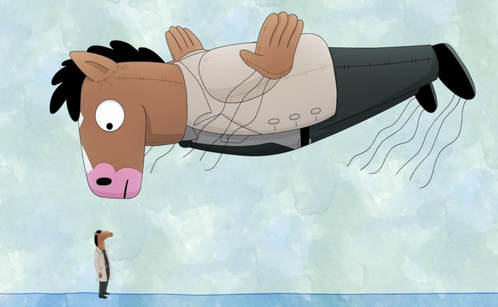
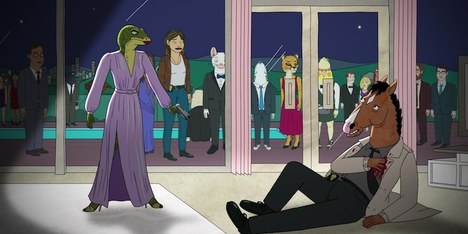
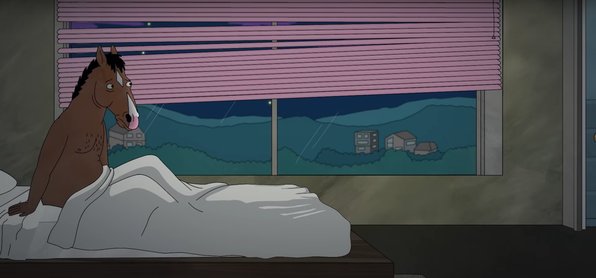
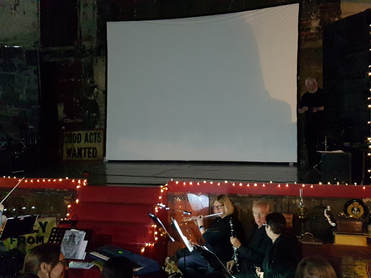
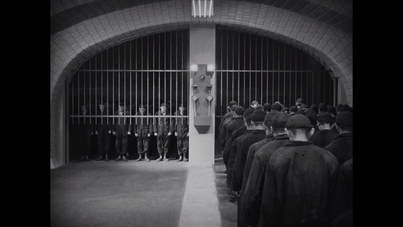
 RSS Feed
RSS Feed
